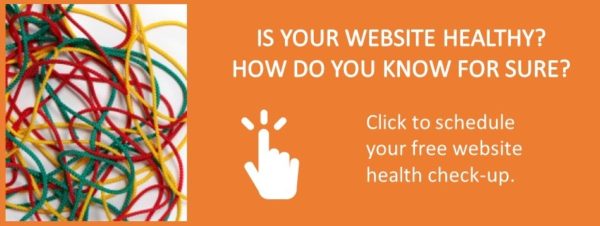
Website development is like home construction in some ways.
How can website development be similar to home construction? This is a metaphor I have used for years when answering questions like, “How much does a website cost?”
I’ve always answered with a variant on “How many rooms will it have? Will you have luxury details or is this a starter home?” Yet, when I am brought in to update, modify, or manage an existing website, I have to also ask, “Does the house sit on land that you actually own? Or is the land on lease or borrowed from a friend?
Can you imagine that? Crazy! But in the website development world, it has not been so obvious to business owners. For a variety of reasons, I believe the most crucial tenet of healthy website is that it sits on land you own. Further, it is constructed of materials that you own.
What is the first rule of healthy website development?
For a variety of reasons, I believe the most crucial tenet of a healthy website is that it sits on land you own. Further, it should be constructed of materials that you own.
Would you ever consider building a house with leased materials—concrete block, wood, or interior finishes that belong to someone else and could be revoked or allowed to fall into disrepair is the true owner changes his mind or disappears?
Even if you owned all the materials used to build your house, would you build your ideal home on land that was only leased to you? The owner could change his or her mind or, unbeknownst to you, not pay the taxes in a timely manner? If it was repossessed your home would go away with the land.
This is how I respond to clients who suggest that they’d rather put all their efforts on Facebook. Maybe they’d have a website, but most of their valuable assets—photos and stories—would live solely on the Facebook platform.
Really? What happens to your presence when Facebook changes the algorithms that control the visibility of your page to your followers? Do you have control over that? Wouldn’t it be better to place these stories, photos, offers, etc. in your website, perhaps as blog posts first? Then you can share each post on Facebook as one means of promoting the post to a larger audience.
Worse yet, is when business owners have made the decision to either build their own or let another build the website on platforms like Wix, Weebly, Squarespace, or GoDaddy’s web builder. Your website URL will look something like www.mybusiness.wix.com. Go Daddy is more cagey about it and you will not see mybusiness.godaddy.com at all. It will be simply your URL built on their platform, a platform that is not search-engine-friendly. You have an extra wall to hurdle in order to be found on the internet by those searching for you without the direct address.

I recently reviewed the website of a prospective client and with only a little bit of digging, I discovered that she had not placed her website on her own land. While her URL, herbusiness.com, was what I used to get to her website, when I looked closer I saw the truth.
She had purchased a hosting plan from her previous web developer (I think this alone invites other issues you don’t want, but that’s another story.) The URL was hosted on his platform. The actual URL address of all her content was herbusiness.webdeveloperbusiness.com.
Any optimization she did on her site raised the visibility of her page, but also HIS website benefited from her efforts. This doesn’t smell right and it is not right.
Quick Facts on Website Development:
URL is what we call the exact address where your website, for example, can be found on the internet. URL stands for Uniform Resource Locator. A URL is user-friendly, easy to remember, real language address like mybusiness.com.
Not to complicate things, but there is more behind your URL It points to a Domain Name Server (DNS) that translates domain names into IP addresses. DNS makes it possible for us to those use easy to remember domain names in place of complex IP addresses consisting of a series of numbers and letters. Whew!!
DNS is sort of like the white pages directory of the internet – when you enter a domain name into your internet browser, DNS does the directory lookup to find out which server that domain is pointed to and what it’s IP address is and then it responds by displaying the site you requested.
And finally, your IP address is in the original language of the internet: Internet Protocol.
At times I feel that I am in this business largely to help business owners avoid traps like this. To keep everything transparent I follow these rules:
- The client always owns the hosting contract with a high-quality, third party hosting company.
- The website itself is built in the most popular and well-respected open-source code in the world: WordPress.
- The client always maintains admin control in addition to the admin access I must have to work on the site.
Why these rules? If for any reason I or my company disappears—use the phrase “hit by a bus”—you, the client, have full access to the website and can much more easily find another WordPress expert to take over the website maintenance and design.
I don’t plan on going away, but it always helps to be prepared! I’ve learned my clients appreciate that peace of mind. Would you?
Contact me for a free website assessment, no strings attached.

